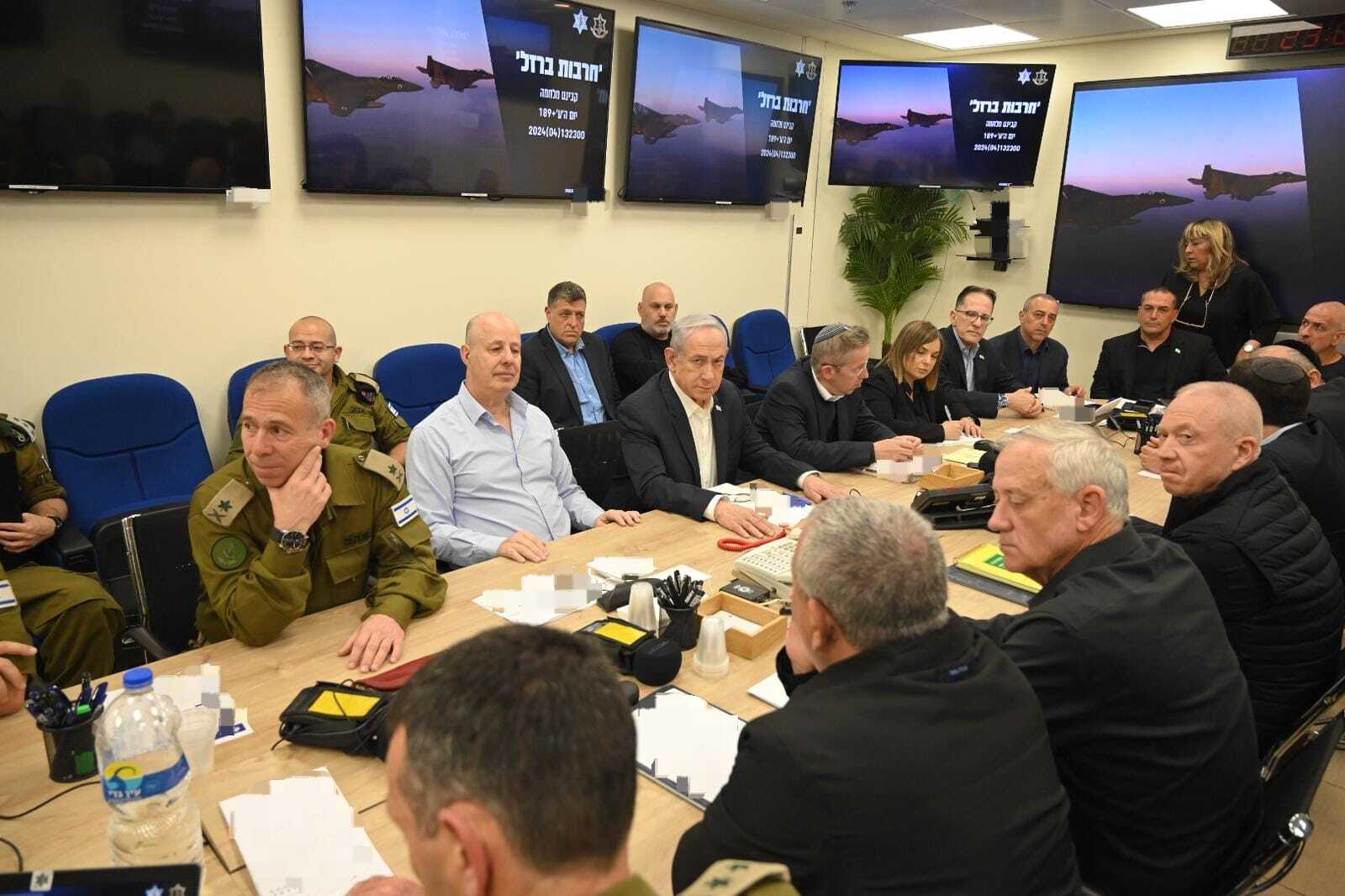Threat of wider Middle East war now depends on Israel’s response to Iran attack
Tehran says the confrontation between the two adversaries has concluded, writes Kim Sengupta, with Western nations urging restraint as they await Israel’s decision


Your support helps us to tell the story
From reproductive rights to climate change to Big Tech, The Independent is on the ground when the story is developing. Whether it's investigating the financials of Elon Musk's pro-Trump PAC or producing our latest documentary, 'The A Word', which shines a light on the American women fighting for reproductive rights, we know how important it is to parse out the facts from the messaging.
At such a critical moment in US history, we need reporters on the ground. Your donation allows us to keep sending journalists to speak to both sides of the story.
The Independent is trusted by Americans across the entire political spectrum. And unlike many other quality news outlets, we choose not to lock Americans out of our reporting and analysis with paywalls. We believe quality journalism should be available to everyone, paid for by those who can afford it.
Your support makes all the difference.Iran’s retaliation against Israel was spectacular, but militarily largely ineffective, with reports that 99 per cent of the 330 attack drones, ballistic and cruise missiles sent being shot down. It will, however, have significant consequences.
The Nevatim airbase in the Negev was hit, causing minor damage according to the Israelis. The only reported casualty was a 10-year-old Bedouin child who suffered minor injuries.
What happens next will decide whether the matter ends with some more, limited military action, or whether a wider war breaks out in the Middle East, sending repercussions reverberating far beyond the region.
In this fraught and uncertain period we are in the geopolitics Donald Rumsfeld, who in 2002 while serving as George W Bush’s defence secretary, spoke about “known knowns, known unknowns and unknown unknowns”.
It was known that Iran would have to retaliate for the killing of an Iranian commander and senior officers in the Islamic Revolutionary Guards Corps (IRGC) at its consulate in Damascus by Israel, and that, in the form of “Operation Honest Promise” has now taken place.
The known unknown is whether Israel will now carry out strikes inside Iran. What is unknown at this stage is whether such an escalation in an area which is already a tinderbox of heavily-armed presences, will lead to a conflagration.

The Israeli government has told the US and states in the Middle East that it will respond forcefully to the Iranian assault. Iran’s president, Ebrahim Raisi, has threatened an “even stronger response” to any “reckless” Israeli move.
The Israeli response will be decided by a specially formulated three-member war cabinet of prime minister Benjamin Netanyahu, the defence minister, Yoav Gallant, and Benny Gantz, the former head of the Israeli military who joined the government after the Hamas massacre on 7 October.
Joe Biden is said to have reiterated that Israel will have full US support in a 25-minute telephone call with Mr Netanyahu. However, according to American media reports, the president has privately expressed concern that the Israeli prime minister is “trying to drag the US more deeply into a broader conflict”.
There is little doubt that Israel would like to use this opportunity to fulfil its long-held ambition to try and destroy Iran’s nuclear installations. It has not done so yet because it would be extremely difficult to achieve without US military support.
Tehran is well aware of this. After launching its attacks overnight, Iran's mission to the United Nations declared that retaliation for the attack on the Damascus diplomatic compound is over. However, it added: “Should the Israeli regime make another mistake, Iran’s response will be considerably more severe. It is a conflict between Iran and the rogue Israeli regime, from which the US MUST STAY AWAY!”

Iran has, ever since the killings of the IRGC officers, been assuring Washington that avenging the deaths would not involve any Western targets. The warning by Tehran that it may launch attacks on Israel meant the US was able to carry out preparations which enabled US, British and Jordanian airplanes to shoot down Iranian drones.
The fact that this coordinated international action was effective was pointed out to Mr Netanyahu by Mr Biden in the telephone call, according to US officials. The “remarkable” defensive capacity, the president stressed was “a clear message to its foes they cannot effectively threaten the security of Israel”.
This, by itself, is unlikely to stop Israel from carrying out counterstrikes. The question is what form they will take. Iranian allies such as Hezbollah in Lebanon, Shia militias in Syria and Iraq and the Houthis in Yemen could be in the firing line. There may be attacks in Iran. After all, Israel has carried out regular assassinations of scientists involved in the nuclear programme inside the country.
Meanwhile, diplomatic efforts to curb escalation continue, with a meeting of the UN Security Council later on Sunday.
Iranian officials who had been counselling caution to their own government, claim that a swift condemnation of the consulate killings by the Security Council may have limited Iran’s response.
They point out that an Iranian land assault in Afghanistan in 1998, when the Taliban killed Iranian diplomats in a consulate, was called off after a strong stricture by the UN. The US, UK and France, they complain, prevented a similar message being sent after the Damascus strike.
Join our commenting forum
Join thought-provoking conversations, follow other Independent readers and see their replies
Comments